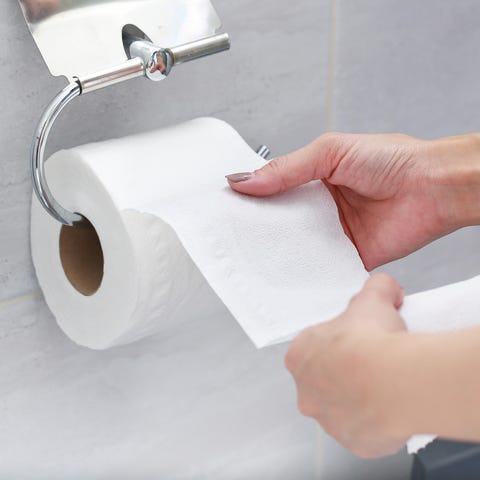5 Spasticity Triggers to Avoid
5 Spasticity Triggers to Avoid
If you or a loved one have suffered a stroke, a brain or spinal cord injury, or are living with cerebral palsy or multiple sclerosis (MS), you might be familiar with a condition called spasticity, which affects over 12 million people worldwide.
What exactly is spasticity? Spasticity is often brought on by damage or disruption to the areas of the brain and spinal cord that control muscle and stretch reflexes. The condition causes involuntary muscle spasms and contractions, as well as joint stiffness that can be uncomfortable or even painful.
1. Extreme cold

“Extreme temperature can affect the communication between the nerves and muscles, making symptoms [like stiffness and spasms] worse,”. For some, hot temperatures can be problematic, but it’s more common that cold makes spasticity worse.
One small study of 29 people who had spasticity, either from a stroke or multiple sclerosis (MS), found that nearly 70% experienced worsening symptoms when they were exposed to cold—from either outdoor air or indoor air conditioning.
What might help
If you’ve spent time outdoors in the cold and notice your spasticity has flared or gotten worse, it is recommended getting out of the chilly weather as soon as possible and putting a heating pad on your impacted muscles to gently warm them back up and ease spasticity. Just keep it on for less than 10 minutes and don’t set it to the maximum heat. As much as warmth can calm your muscle’s tension after being out in the cold, “too much heat can work against you, so warm it up slowly". Slow and Steady is the key here.


2. Getting run-down


The same study that found exposure to cold made spasticity worse also found that fatigue aggravated spasticity symptoms in up to 80% of patients. Why does this happen? Some people with spasticity can “resist” it during the day by focusing on relaxing spastic muscles, Dr. Sachdev says. But this takes a lot of cognitive effort. When you’re tired, your brain just doesn’t have the same resources to concentrate on controlling your spasticity.
What might help
This one is pretty obvious—more sleep helps. The problem is, your symptoms can make sleeping a real struggle. If that’s the case, talk to your doctor or an occupational therapist. Treatments like botulinum toxin injections may help calm muscle spasticity that’s keeping you up at night.
Another great practice is to take a 5-10 minute break during the day, and again about 30 minutes before bedtime is where you can lie back, preferably on the bed in your bedroom, close your eyes and complete some deep breathing exercises, it is amazing how this will relieve the stress in your body, TRY IT!
8 Deep Breathing Exercises for Anxiety Relief (verywellmind.com)
3. Stress

Being stressed out can make spasticity worse, too, and it’s for the same reasons that being tired can aggravate your symptoms. When you’re stressed out, you’re not able to put in the same level of concentration to relax spastic muscles. “Anything that puts a strain on the brain, including stress.
What might help
A study that analyzed the habits of people with spasticity found that trouble sleeping and stress are often closely linked for people with spasticity, and both can make spasticity symptoms worse. If you suspect your trouble sleeping is leading to stress that’s intensifying your spasticity, treating the sleep issue will help, Dr. Diaz says. (See how above.) If your stress is unrelated to sleep, speak to a therapist about stress-management techniques. The solution may be as straightforward as sticking to a regular exercise plan or committing to ongoing talk therapy sessions.
4. Infections

People with spasticity tend to have worsening symptoms when there is an infection. That can be any type of infection, but urinary tract infections and respiratory infections are the most common triggers.
Whenever you develop an infection, your body takes away resources from what it has to do on a daily basis and focuses on the acute problem at hand. Usually, neurological symptoms like spasticity suffer.
What might help
If you notice your spasticity has gotten worse and seems to have come on suddenly, an infection may be to blame. Tune into your body—there may be something else going on. Do you have a sore throat? Cough? “The main way to treat worsening spasticity that is a result of an infection is to treat the infection. See your GP to identify if a urinary tract, respiratory, or other infection may be present and treated with antibiotics.
5. A change in bathroom habits

Constipation or diarrhea can interfere with your spasticity symptoms too. That’s especially true if you’re uncomfortable from it. Anything that is associated with pain can make spasticity worse.
“It’s taking your attention away from concentrating on your muscles. If you’re constipated and in pain, you’ll focus more on the pain and less on muscle relaxation and coordination.
What might help
For constipation, try eating high-fiber foods and drinking more water; for diarrhea, go with the BRAT (bananas, rice, applesauce, and toast) diet until the symptoms go away. If your bowel issues don’t get better after a week, seem to worsen over time, or cause pain or dehydration, talk to a healthcare professional to rule out an underlying condition or infection.
If you do suffer from Spasticity, be sure to protect yourself from Soft Tissue Shortening, resulting in loss in your Range Of Motion.
ROM may be maintained through exercise, regular or daily stretching and by using a good Electrical Muscle Stimulation Device like Phase-5 TENS + EMS Combo – JGH Rehab or SaeboStim Pro Electrical Stimulation Device for Stroke Recovery | Saebo.


Also be sure to protect your affected hand, wrist and fingers from contractures, soft tissue shortening, while maintaining ROM by wearing the SaeboStretch – JGH Rehab

All content provided on this blog is for informational purposes only and is not intended to be a substitute for professional medical advice, diagnosis, or treatment. Always seek the advice of your physician or other qualified health providers with any questions you may have regarding a medical condition. If you think you may have a medical emergency, call your doctor or 911 immediately. Reliance on any information provided by the JGH Rehab website is solely at your own risk.
